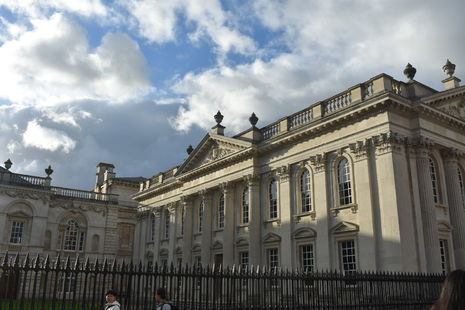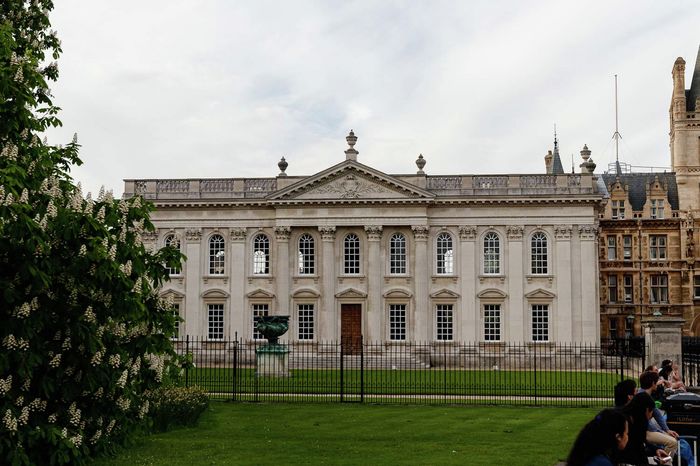White Cambridge academics paid almost 6% more than BME colleagues
The UCU has labelled ethnic pay gaps ‘a scandal that needs urgent attention’

There is a mean annual salary gap of 5.67% between black and minority ethnic (BME) and white academics at Cambridge, as of October 2024.
Freedom of Information requests reveal that, on average, BME academics annually earned £71,733.75, compared to £76,015.79 taken home by their white colleagues.
This comes as universities are facing increasing pressure to tackle ethnic pay gaps across the higher education sector, following a report that claimed the institutions “perpetuate institutional racism”.
A spokesperson for the Cambridge University and College Union (UCU) told Varsity that race and pay gaps are “a scandal which needs urgent attention” and that “the race pay gap overall is likely to be much worse than these figures suggest as the vast majority of BAME staff at the University are concentrated […] in the lowest paid roles,” being non-academic jobs.
According to the University’s most recent annual Equality, Diversity and Inclusion (EDI) report for 2022-23, published on 31 March 2024, there was a 5.33% hourly ethnic pay gap across all staff, rather than just academics. This marked the third consecutive year that the ethnic pay gap across all staff had increased, from 2.9% in 2020-21 and 4.3% in 2021-22.
These reports also highlight an unequal distribution of bonuses between BME employees and their white colleagues. In 2022-23, 83.6% of white staff received a bonus, compared to only 71.0% of non-white employees.
Maroof Rafique, the Students’ Union’s BME Officer condemned this gap, stating that it was “concerning yet unsurprising, given Cambridge University’s tokenistic approach to EDI initiatives […] showing that BME staff are disproportionately disadvantaged compared to their white counterparts”.
“These widening gaps, mirrored in disparities in student awards, underscore systemic inequities that require urgent and robust action. For too long, these disparities have been mischaracterized as anomalies rather than structural failings rooted in unconscious biases, inequitable hiring, and a culture that marginalises BME individuals. Cambridge must go beyond performative gestures and implement measurable strategies, beginning with decolonising hiring practice,” he continued.
Rafique is currently on a decolonisation report, which aims to confront Cambridge’s “deep-rooted complicity in the legacies of colonialism,” by “ensuring that decolonisation is embedded in every aspect of University life”.
In the most recent EDI report, the University said “the figures remain low” and that “some fluctuation year on year is expected, as the composition of our workforce changes.”
The University further stated that it is “committed to the principles of equal pay for work of equal value, freedom from discrimination, and recognition and reward of the University’s staff as its greatest assets.”
In 2023, the University drew up a Gender Pay Gap Action Plan which committed to measures such as diversifying recruitment, promoting flexible working options and advertising jobs with pay ranges. There is currently no equivalent plan to address the ethnic pay gap.
This news comes two years after the Daily Mail reported that two-thirds of Russell Group universities have paid BME staff less than their white peers.
A government report from 2023 sought to explain the different reasons for ethnic pay gaps: “Lower pay among a particular ethnic group may be because that group disproportionately applies for lower-paid, more junior positions in an organisation.”
“On the other hand, it could be because the company does not provide adequate progression opportunities for people from that ethnic group.”
In October, a black Cambridge scholar sued the university for discrimination, claiming that he wasn’t shortlisted for a job interview because of his skin colour. However, the tribunal dismissed all claims and no allegations of discrimination were upheld against the University.
A spokesperson for the University of Cambridge told Varsity: “The annual Ethnicity Pay Gap for the Academic University, published every year as part of our Equality and Diversity Information Report, includes all staff employed at the University of Cambridge, not only academic positions. The pay gaps reported in the Equality and Diversity Information Report adhere to statutory requirements and use the calculation methodology based on hourly pay as outlined on the government’s website.”
“Therefore, the figures obtained via the Freedom of Information request may not accurately reflect the Ethnicity Pay Gap published for the Academic University. The University continues to work on ways to eliminate ethnicity pay gaps, including attracting, recruiting and welcoming a more diverse workforce, and enhancing career development,” they continued.
 News / Colleges charge different rents for the same Castle Street accommodation2 March 2026
News / Colleges charge different rents for the same Castle Street accommodation2 March 2026 News / King’s hosts open iftar for Ramadan3 March 2026
News / King’s hosts open iftar for Ramadan3 March 2026 Theatre / Lunatics and leisure centres 4 March 2026
Theatre / Lunatics and leisure centres 4 March 2026 News / Angela Merkel among Cambridge honorary degree nominees27 February 2026
News / Angela Merkel among Cambridge honorary degree nominees27 February 2026 News / News in Brief: waterworks, wine woes, and workplace wins 1 March 2026
News / News in Brief: waterworks, wine woes, and workplace wins 1 March 2026








